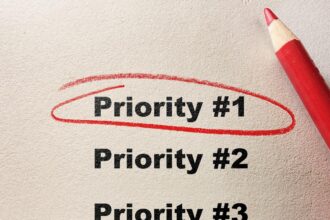Here are two very important questions I ask clients who are over 65, still employed, and considering Medicare enrollment.
One: “Is your prescription drug coverage considered to be creditable?”
The response is frequently a blank stare or a shoulder shrug.
Two: “Have you gotten any notices from your employer about the status of your prescription drug coverage?”
Once again, I get blank stares or shoulder shrugs.
The wrong answer to these two questions can be very costly. Here’s what happened to one of my clients recently.
Will, 73 years old, has been on his wife’s group health plan since age 65. She is turning 65 and will retire this summer, so he needs to get a Medicare Part D drug plan. He didn’t know anything about creditable drug coverage or notices. But he quickly felt the impact. Will discovered that the drug coverage he has had for eight years is not creditable. He now faces a Part D late enrollment penalty that could be as much as $33 a month this year.
Now that I have your attention, let’s start at the beginning. Here are seven important questions.
What is creditable prescription drug coverage?
Medicare expects individuals turning 65 to enroll in a Part D prescription drug plan at age 65. However, those who have creditable drug coverage can delay enrollment, without penalty. Creditable means that the coverage is expected to pay on average as much as the standard Medicare prescription drug plan.
How can you get creditable drug coverage?
This can be part of an employer group health plan, retiree plan, or COBRA continuation coverage, to name a few. Drug coverage provided through a Federal Employee Health Benefits plan or the Veterans Administration is also creditable.
Why do you have to pay attention to this?
If the drug coverage is creditable, you can delay enrolling in Part D coverage until you’re losing or giving up your current coverage. You will have a special enrollment period to sign up for a Part D stand-alone plan or a Medicare Advantage plan with prescription drug coverage, also known as an MA-PD plan. If the coverage is not considered creditable, you will face a late enrollment penalty, as in Will’s case.
How much is the late enrollment penalty?
The penalty applies after 63 days without creditable coverage or no drug coverage. It is 1% of the national base beneficiary premium for every month without creditable coverage. In 2024, that is $0.347. The penalty amount changes every year and follows for as long as one is enrolled in Part D.
How can you determine whether your drug coverage is creditable?
By law, sponsors of drug coverage must provide a written notice by October 15 every year to Medicare-eligible individuals (those over 65). This is not the Certificate of Creditable Coverage that proves you have had health insurance. Rather, it is a notice specifically about drug coverage. The Centers for Medicare and Medicaid Services (CMS) has a model that sponsors must follow. (See one here.) Look for the words, “is therefore considered Creditable Coverage.”
What should you do if the coverage is creditable?
You need to do two things.
- Make sure you get a creditable prescription drug notice from the sponsor of your drug coverage every October. Those turning 65 who decide to delay Medicare should ask for a copy of the current notice.
- Save those notices. After enrolling in Medicare drug coverage, you might get a letter from the Part D insurer, asking for details about the drug coverage you have had since age 65. The notices will provide the information the insurer needs to know.
What if you discover that the coverage is not creditable?
You can enroll in a stand-alone Part D plan, even if you are keeping your current plan. You will not face a penalty when enrolling at retirement.
To qualify for a Part D plan, you must also enroll in Part A, hospital insurance. This could be problematic if you are contributing to a Health Savings Account. You would no longer be eligible to contribute. In this case, you can make an informed decision not to get Medicare drug coverage and realize that you would face a penalty in the future.
Take a lesson from Will’s experience. Figure out how “creditable” applies to your situation if you plan to delay Medicare enrollment past age 65. Then the next time you get any questions about creditable drug coverage, you’ll have the right answers.
Read the full article here










